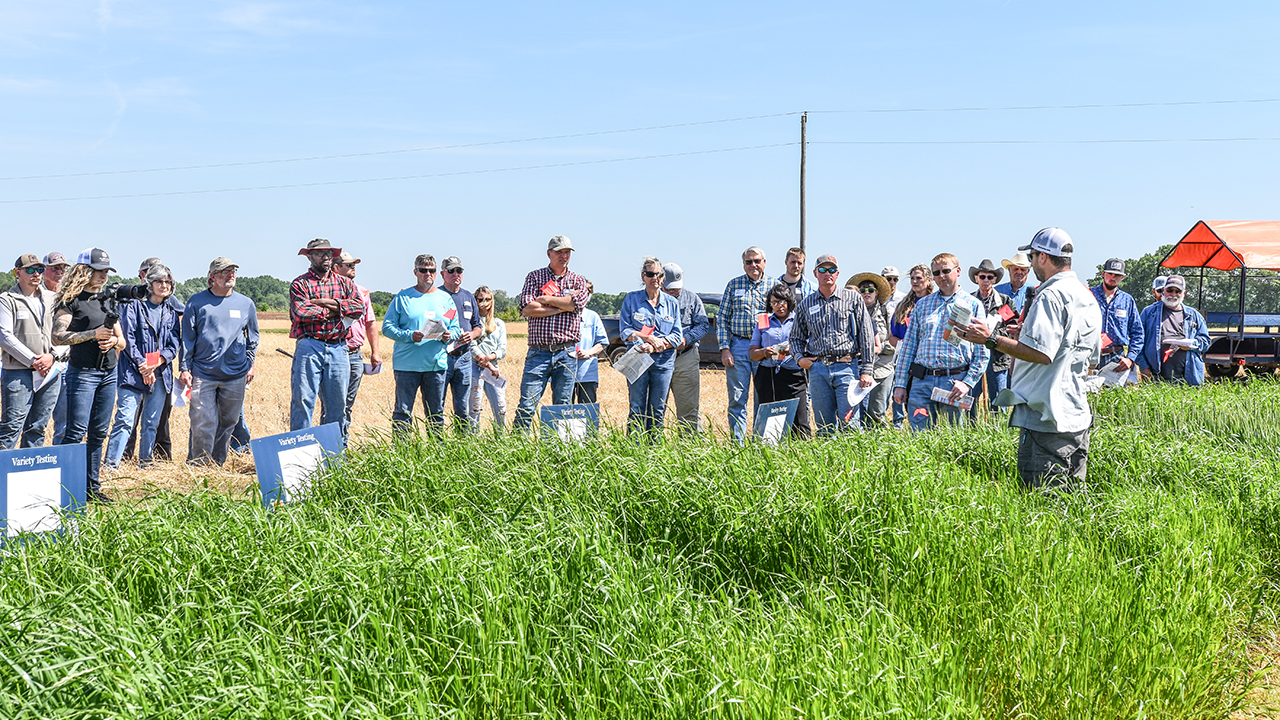Auburn University
Variety Testing Program

Variety selection is the most important decision a farmer can make. If farmers want to be successful, they must ensure that they plant varieties that are well adapted. If a farmer selects the wrong variety, the results can be catastrophic. Typically, farmers do not have the resources to conduct variety trials in addition to their normal growing season activities.
Variety evaluation is also critical to plant breeders, both from universities and industry. Prior to releasing a new variety, these breeders typically evaluate their lines in independent variety trials. This ensures that they have unbiased data from multiple years and locations to support the release of their new variety.
The mission of the Auburn University Variety Testing Program is to provide research-based, unbiased results on the performance of various crop hybrids, cultivars, and varieties to the agricultural community in Alabama. We are intent on conducting these trials in a manner that will result in maximum biological yield through methods common to the top-producing farms in Alabama.
We are committed to providing this information in a timely manner for its use during the decision-making process. The success of the program rests on our ability to help Alabama producers provide a safe, dependable source of food and fiber for all families as well as an economic sustainability for theirs.

Henry Jordan
Variety Testing Manager, Research Associate IV
Subscribe to AU Variety Testing Updates
Annually, the Auburn University Variety Testing Program conducts trials on corn, cotton, soybeans, peanuts, grain sorghum, wheat, barley, oats, triticale, small grain forages, and ryegrass.
Trials are conducted on Auburn University owned and operated agricultural research stations across the major geographical regions of the state. The research conducted at each of these locations can provide stakeholders with data that can be more representative of their growing conditions.
VARIETY CATEGORIES
Performance of Sesame in Alabama, 2025
December 4 - Plant heights are now available from the WREC trial.November 25 - Preliminary results are available for the three sesame OVTs.
Performance of Cotton Varieties in Alabama, 2025
February 12 - GCREC Short Season classing results are now available.January 8 Results are available for the following on-farm trials conducted by Extension (variety selection tool only). Autauga County Baldwin County - Sirmon Cherokee County - Lindsey Full Season...
Performance of Grain Sorghum in Alabama, 2025
September 18 - Results for the Late Planted OVT at the Wiregrass Research & Extension Center (WREC) in Headland are available.September 12 - Results for the Early Planted OVT at the EV Smith Research Center (EVSRC) in Shorter are available. August 22 - The first...
Performance of Corn Hybrids in Alabama, 2025
November 25 – Results are now available for the Cullman County on-farm corn trial.November 13 – Quality results are available for the SMREC OVT. October 28 - Yield results are available for the following trials. SMREC Non-Irrigated OVT Houston County On-Farm October...
Performance of Peanut Varieties in Alabama, 2025
December 4 - The following results are now available. OVT Seed Per Pound at Harvest GCREC WREC Irrigated WREC Non-Irrigated On-Farm Yield Baldwin County Frisco City Henry County Lee County Selma November 21 - The following results are now available. EVSRC Seed per...
2025-2026 OVT Winter Entry Forms – Forages & Grain
August 1 - Entry forms for the 202-2026 season are available. Select the tab(s) of interest below for details and options for forage and/or grain. Seed treatments are permitted but must be labeled and accompanied by MSDS sheets. Once the entry form has been completed...





